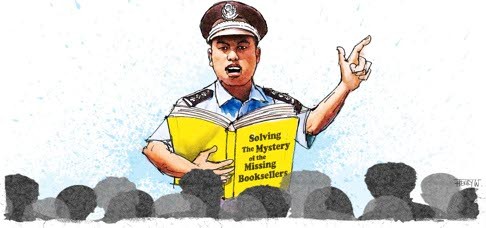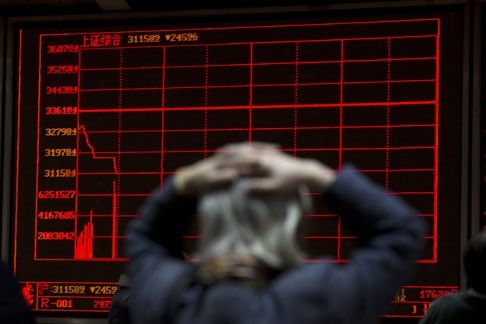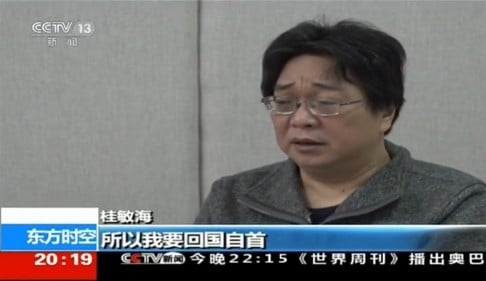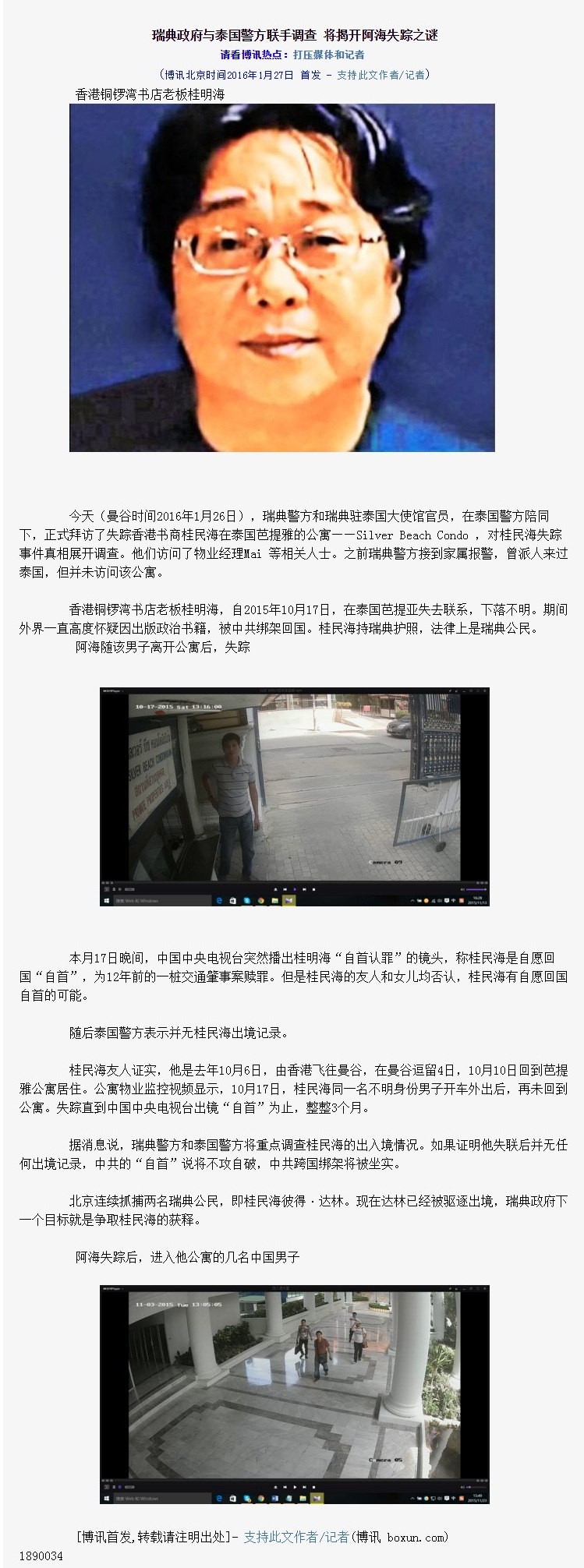Missing Hong Kong bookseller in China to answer 11 year-old conviction - state media
Reuters
January 18, 2016, 2:30 am
Books on China politics and senior leaders are displayed inside a bookstore in Hong Kong, China January 8, 2016. Picture taken January 8, 2016. REUTERS/Bobby Yip
BEIJING (Reuters) - A Swedish bookseller whose mysterious disappearance has sparked fears he may have been taken by Chinese agents said he had voluntarily turned himself into the authorities for a drink-driving accident that resulted in a death 11 years ago.
Gui Minhai, who vanished from his apartment in Thailand last October, voluntarily returned to China to answer a conviction from 2004 for killing a student, state media said on Sunday.
"I am returning to surrender by personal choice, it has nothing to do with anyone," Gui, looking distraught, said in a China Central Television broadcast. "This is a personal responsibility that I ought to bear."
Gui, a naturalized Swedish citizen, is one of five members to have gone missing from of a Hong Kong bookstore that specialises in selling gossipy political books on China's Communist Party leaders.
The disappearances and China's silence have prompted fears that mainland Chinese authorities may be using shadowy tactics that erode the "one country, two systems" formula under which Hong Kong has been governed since its return to China from British rule in 1997.
In recent years, state media has publicised a string of what is presented as confessions made by high-profile suspects. Critics say these accounts deprive the accused of the right to a fair trial.
Earlier this month, the Swedish Foreign Ministry said it had raised Gui's case with the Chinese ambassador to Stockholm.
It was not possible to contact Gui and it remains unclear whether he has a lawyer.
DAUGHTER BELIEVES GUI ABDUCTED
Gui's daughter, Angela, who is based in Britain, said she could not confirm what was being reported but that she still believed her father had been abducted and his detention was related to his work.
Gui Minhai cautioned in the report "any individual or organization" against intervening or "engaging in malacious speculation."
His confession was broadcast Sunday night on China Central Television. The official Xinhua News Agency published a separate report.
Gui, who holds a Swedish passport, "surrendered to public security organs" in October, Xinhua said, without providing details about his surrender or transport from Thailand.
Gui was sentenced to two years imprisonment, suspended for two years, after killing a female student in the coastal city of Ningbo while driving drunk, the report said.
Gui fled in August 2006 and his two-year probation was revoked. He is now suspected of other crimes, the report said.
"Although I have Swedish citizenship, I truly feel I'm Chinese, my roots are still in China. So I hope that Sweden will respect my personal choice, respect my rights and privacy and let me solve my own problems," Gui said.
The five missing booksellers include Lee Bo, a British passport holder who disappeared from Hong Kong at the end of last month.
Chinese Foreign Minister Wang Yi said on Jan 5 that Lee is "first and foremost a Chinese citizen" and called on others not to make "groundless accusations" on the case.
In a handwritten note dated January 3 and purportedly written and signed by Lee, photos of which were widely circulated on social and local media but couldn't be verified by Reuters, Lee wrote that he had travelled back to China in order to assist with an unspecified "investigation".
The Xinhua report said that "related persons" are cooperating with the investigation, but didn't provide details of whereabout or status of the other missing persons.
(Reporting By Matthew Miller and Sui-Lee Wee; Additional reporting by Anne Marie Roantree in Hong Kong)






